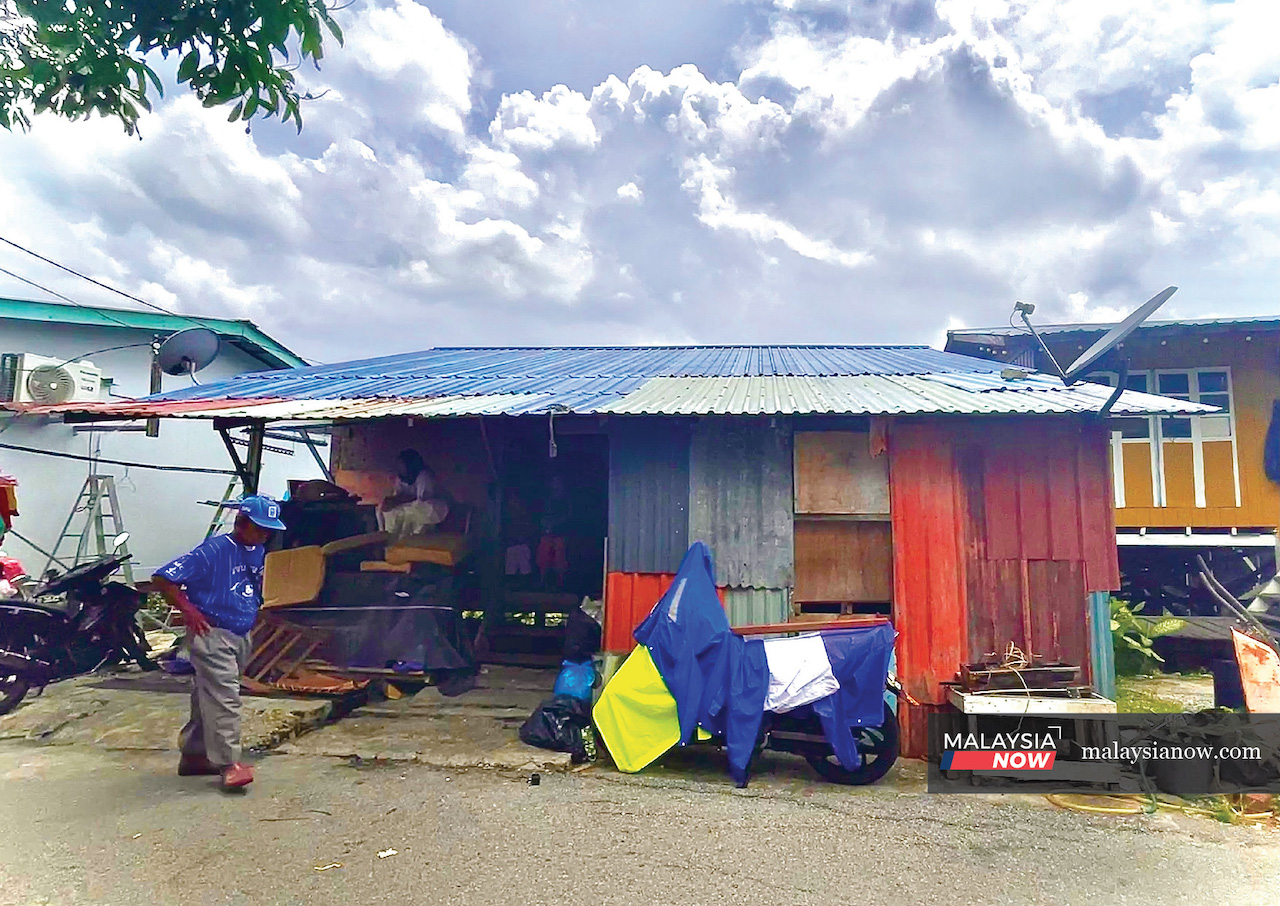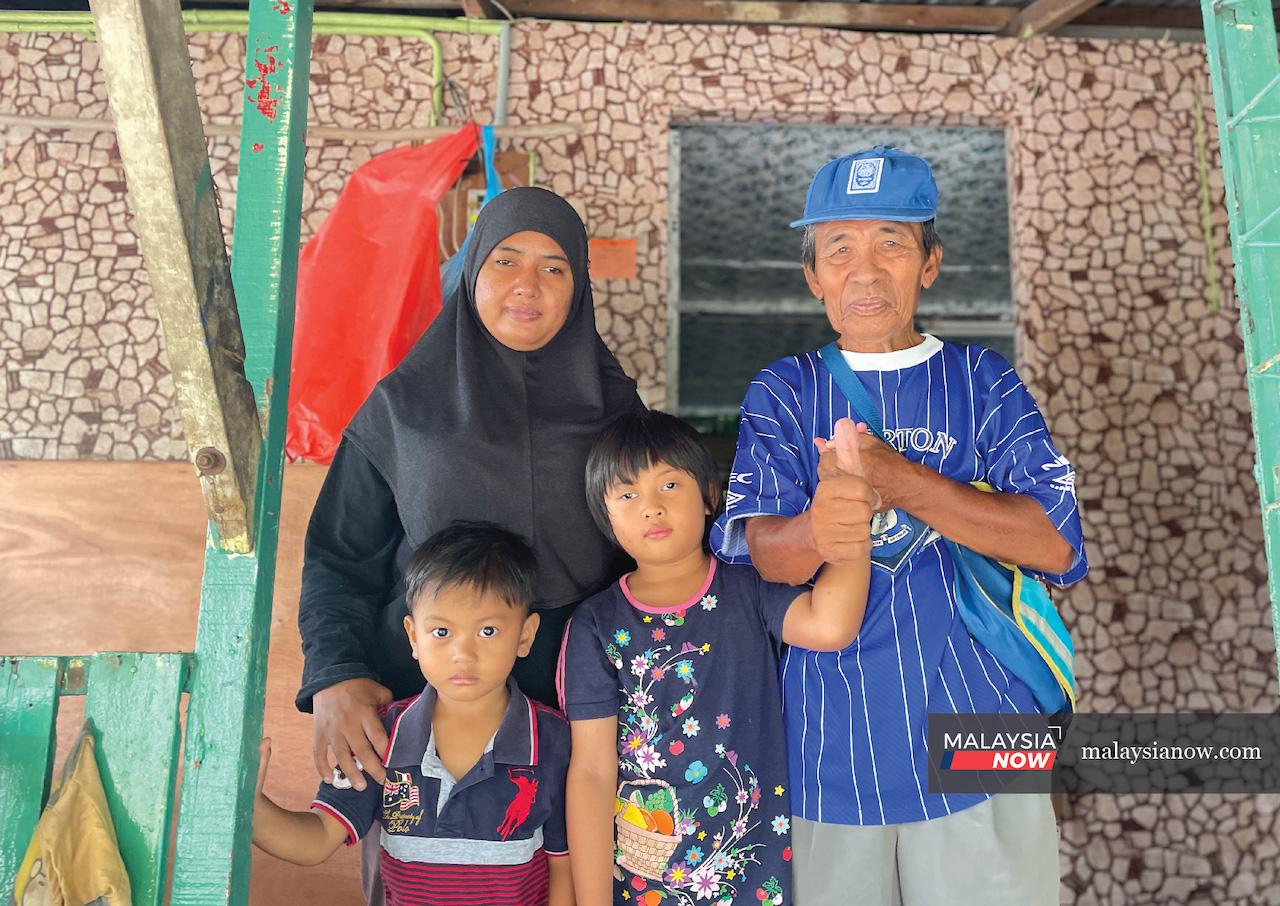Sarawak family of 11, most of them blind, struggle with pandemic life
Siti Zaharah Abdullah and her family say another lockdown might be too much for them to bear.
In a small wooden house in a village in Sarawak, not far from the capital city, lives a family of 11, more of whom have visual impairments than not.
Siti Zaharah Abdullah and her husband Faizal Puini used to work as massage therapists. They also sold snacks at Medan Satok, a market in Petrajaya, where they rented a small space for RM300 a month.
It was a hard life which became even harder after the Covid-19 pandemic hit.
Both Faizal and Siti Zaharah are visually impaired and struggle each day to put food on the table for themselves and their two children.
Should the authorities impose another lockdown, they are unsure how they will survive.
With their small business out of commission due to the pandemic, they are currently relying on the various forms of relief they receive in order to make ends meet. They still take bookings but these are few and far in between.
Should the authorities impose another lockdown, they are unsure how they will survive.
“Visually impaired people like us are hardly hired because of our disability,” Siti Zaharah, 29, told MalaysiaNow.
“We have been living on a shoestring budget since before the pandemic. There’s nothing much we can do.”
She and her family now live with her in-laws in their house in Kampung Gita Lama, Petrajaya, about 6km away from the city centre.
Faizal’s five siblings also stay there, bringing the total number of people living in the house to 11.
Of these, Siti Zaharah and Faizal, along with his mother and four of his siblings, are visually impaired.

Faizal’s father, Puini Jaiman, and three of his brothers earn what they can collecting tin cans. His two youngest sisters face mental challenges of various degrees.
When the first lockdown was imposed in March last year, Faizal and Siti Zaharah had zero income.
“Apart from the Covid-19 special financial aid, we had to rely on the RM250 we got each month from the state welfare department,” Siti Zaharah said.
She recalled the sinking feeling of despair that she would experience each time there was no money to buy essentials, including food supplies.
She also worries a lot about her children, especially her daughter who is six years old.
“I worry about whether she can cope with her learning sessions,” she said. “The school closures mean that she has to learn remotely from home.”
Even the prospect of having to print out the learning materials is daunting as the family cannot afford a printer.
“We can’t even afford to buy food,” Siti Zaharah said. “To print out her learning material, we would have to take public transport to go to a printing shop.”

Since the start of the pandemic, what little income they have has been earned selling packets of tissue on the streets.
“There are days when we don’t have enough to eat after feeding our children,” she said. Little luxuries like milk are distant dreams.
The family survives by sharing what food they have. In the same way, they pool their money to pay for electricity and water.
“Everyone has to chip in,” Siti Zaharah said.
They also share their sleeping space, which is the tiny living room.
“We are fortunate to live in a community,” she said, adding that her neighbours often shared their food with them during the lockdown periods.
But even so, she is under no delusions about her family’s situation.
“I don’t think we can afford to face another movement control order.”
Subscribe to our newsletter
To be updated with all the latest news and analyses daily.
